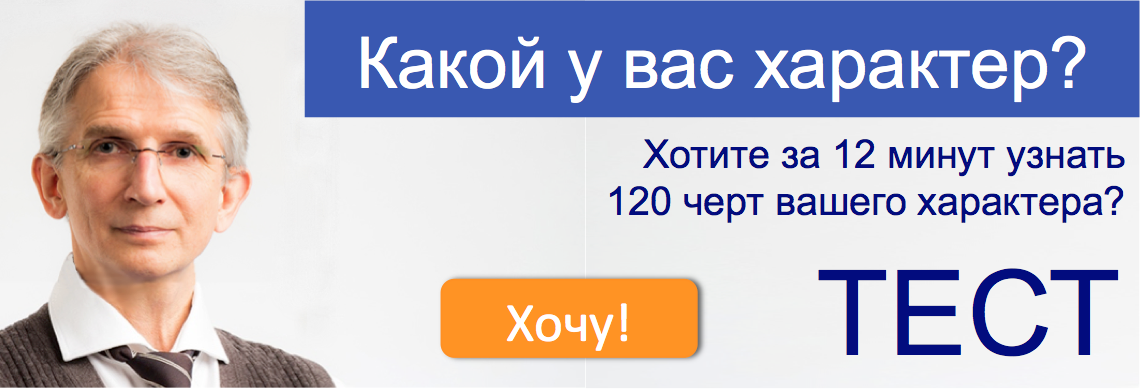Ormiston L. H. «Factors Determining Response to Modeled Hypocrisy». Unpublished doctoral dissertation, Stanford University, 1972.
Packer H. L. The Limits of the Criminal Sanction. Stanford, Calif: Stanford University Press, 1968.
Parker E. P. «Information Utilities and MassCommunication». In H. Sackman & N. Nie (Eds.), Information Utility and Social Choice. AFIPS Press, Montvale N. J., 1970.
Patterson G. R. «The Aggressive Child: Victim and Architect of a Coercive System». In L. A. Hamerlynck E. J. Mash, & L. C. Handy (Eds.), Behavior Modification und Families. New York: Brunner/Mazell, 1975.
Patterson G. R., & Cobb, J. A. «A Dyadic Analysis of 'Aggressive' Behavior». In J. P. Hill (Ed.), Minnesota Symposia on Child Psychology (Vol. 5). Minneapolis: University of Minnesota Press, 1971.
Peterson D. R. The Clinical Study of Social Behavior. Engleweed Cliffs N. J.: Prentice-Hall, Inc., 1968.
Piaget J. The Moral Judgment of the Child. Glencoe, 111.: Free Press, 1948.
Piaget J. Play, Dreams, and Imitation in Childhood. Noew York: Norton, 1951.
Piaget J. «Equilibration and the Development of Logical Structures». In J. M. Tanner & B. Inhelder (Eds.), Discussions on Child Development (Vol. 4). New York: International Universities Press, 1960.
Porro С R. Effects of the Observation of a Model's Affective Responses to Her Own Transgression on Resistance to Temptation in Children. Dissertation Abstracts, 1968, 28: 3064.
Postman L., & Sassenrath J. «The Automatic Action of Verbal Rewards and Punishments». Journal of General Psychology, 1961, 65: 109-136.
Premack D. «Reinforcement Theory». In D. Levine (Ed.), Nebraska Symposium on Motivation. Lincoln: University of Nebraska Press, 1965.
Rachlin H. «Self-control». Behaviorism, 1974, 2: 94-107.
Rachman S. «Sexual Fetishism: An Experimental Analogue». Psychological Record, 1966, 16: 293-296.
Rachman S. The Effects of Psychotherapy. Oxford: Per- gamon, 1971.
Rachman S. «Clinical Applications of Observational Learning, Imitation, and Modeling». Behavior Therapy, 1972, 3: 379-397.
Raush H. L. «Interaction Sequences». Journal of Personality and Social Psychology, 1965, 2: 498-499.
Raush H. L., Barry W. A., Hertel R. K., & Swain M. A. Communication Conflict and Marriage. San Francisco: Jossey-Bass, 1974.
Redd W. J„ & Birnbrauer J. S. «Adults as Discriminative Stimuli for Different Reinforcement Contingencies with Retarded Children». Journal of Experimental Child Psychology, 1969, 7: 440-447.
Reiss S., & Sushinsky L. W. «Overjustification, Competing Responses, and the Acquisition of Intrinsic Interest». Journal of Personality and Social Psychology, 1975, 31: 1 1 161125.
Rescorla R.A. «Informational Variables in Pavlovian Conditioning». InG. H. Bower (Ed.), The Psychology of Learning and Motivation (Vol. 6). New York: Academic Press, 1972.
Rescorla R. A., & Solomon R. L. «Two-Process Learning Theory: Relationships between Pavlovian Conditioning and Instrumental Learning». Psychological Review, 1967, 74: 151-182.
Rest J., Turiel E., & Kohlberg L. «Level of Moral Development as a Determinant of Preference and Comprehension of Moral Judgments Made by Others». Journal of Personality,
37:225-252.
Revusky S. H., & Garcia J. «Learned Associations over Long Delays». In G. H. Bower (Ed.), The Psychology of Learning and Motivation (Vol. 4). New York: Academic Press,
Riesman D. The Lonely Crowd. New Haven: Yale University Press, 1950.
Robertson T. S. Innovative Behavior and Communication. New York: Holt, Rinehart & Winston 1971.
Rogers E. M., & Shoemaker F. Communication of Innovations: A Cross-cultural Approach (2nd. ed.). New York: Free Press, 1971.
Rosekrans M. A., & Hartup W. W. «Imitative Influences of Consistent and Inconsistent Response Consequences to a Model on Aggressive Behavior in Children». Journal of Journal of Personality and Social Psychology, 1967, 7: 429434.
Rosenbaum M. E. «The Effect of Stimulus and Background Factors on the Volunteering Response». Journal of Abnormal and Social Psychology, 1956, 53: 1 18-121.
Rosenbaum M. E., & Hewitt O. J. «The Effect of Electric Shock on Learning by Performers and Observers». Psychonomic Science, 1966, 5: 81-82.
Rosenhan D., Frederick F., & Burrowes A. «Preaching and Practicing: Effects of Channel Discrepancy on Norm Inter- nalization». Child Development, 1968, 39: 291-301.
Rosenthal T. L., & Zimmerman B. J. Social Learning and Cognition. Unpublished manuscript, Memphis State University, 1976.
Ross M. «Salience of Reward and Intrinsic Motivation». Journal of Personality and Social Psychology, 1975, 32: 245254.
Ross M. «The Self Perception of Intrinsic Motivation». In J. H. Harvey W. J. Ickes & R. F. Kidd (Eds.), New Directions in Attribution Research. Hillsdale N. J.: Erlbaum, 1976.
Sandler J., & Quagliano J. «Punishment In a Signal Avoidance Situation». Paper read at Southeastern Psychological meeting, Gatlinburg, Tenn., 1965.
Schwartz B. «On Going Back to Nature: A Review of Seligman and Hager's Biological Boundaries of Learning». Journal of Experimental Analysis of Behavior, 1974, 21: 183198.
Schwartz G. E. «Cardiac Responses to Self-Induced Thoughtx». Psychophysiology, 1971, 8: 462-467.
Seligmun M. E. P. «Phobias and Preparedness». Behavior Therapy, 1971, 2: 307-320.
Seligman M. E. P., & Hager J. L. Biological Boundaries of Learning. New York: Appleton-Century-Crofts, 1972.
Shapiro D., & Schawartz G. E. «Biofeedback and Visceral Learning; Clinical Applications». Seminars in Psychiatry, 1972, 4:171-184.
Sherman J. A. «Imitation and Language Development». In P. Lipsitt & С. С Spiker (Eds.), Advances in Child Development. Vol. 6. New York: Academic Press, 1971.
SiegelA. E. «The Influence of Violence in the Mass Media upon Children's Role Expectation». Child Development 1958, 29: 35-56.
Skinner B. F. Walden Two. New York: Macmillan, 1948.
Skinner B. F. Beyond Freedom and Dignity. New York: Knopf, 1971.
Snow С. Е. «Mother's Speech to Children Learning Language». Child Development, 1972, 43: 549-565.
Soule J. C, & Firestone I. J. «Model Choice and Achievement Standards; Effects of Similarity in Lucus of Control». Unpublished manuscript, University of Wisconsin (Milwaukee), 1976.
Spielberger С D., & De Nike L. D. «Descriptive Behaviorism versus Cognitive Theory in Verbal Operant Conditioning». Psychological Review, 1966, 73: 306-326.
Stone L. J., & Hokanson J. E. «Arousal Reduction via Self-punitive Behavior». Journal of Personality and Social Psychology, 1969, 12: 72-79.
Stotlar.d E. «Exploratory Investigation of Empathy». In L. Berkowitz (Ed.), Advances in Experimental Social Psychology (Vol. 4). New York: Academic Press, 1969.
Stouwie R. J., Hetherington E. M., & Parke R. D. «Some Determinants of Children's Self-Reward Behavior after Exposure to Discrepant Reward Criteria». Developmental Psychology, 1970, 3:3 13-3 1 9.
Sullivan E. V. «The Acquisition of Conservation of Substance through Film-Mediated Models». In D. W. Brison & E. V. Sullivan (Eds.), Recent Research on the Acquisition of Conservation of Substance. Education Monograph, toronto: Ontario Institute for Studies in Education, 1967.
Testa T. J. «Causal Relationships and the Acquisition of Avoidance Responses». Psychological Review, 1974, 81: 491 - 505.
Thoresen C. E., & Mahoney M. J. Behavioral Self-control. New York: Holt, Rinehart & Winston, 1974.
Toch H. Violent Men. Chicago: Aldine, 1969.
Truax С. В. «Reinforcement and Nonreinforcement in Ro- gerian Psychotherapy». Journal of Abnormal Psychology, 1966, 71:1-9.
Turiel E. «An Experimental Test of the Sequentiality of Development Stages in a Child's Moral Judgments». Journal of Personality and Social Psychology, 1966, 3: 611-618.
Uzgiris I. C. «Situational Generality of Conservation». Child Development, 1964, 35: 831-841.
Valentine C. W. «The Psychology of Imitation with Special Reference to Early Childhood». British Journal of Psychology, 1930,21:105-132.
Valins S., & Nisbett R. E. Attribution Processes in the Development and Treatment of Emotional Disorders. Morris- town N. J.: General Learning Press, 1971.
Wallace I. «Self-Control Techniques of Famous Novelists». Journal of Applied Behavior Analysis, 1976, in press.
Walters R. H., & Parke R. D. «Influence of Response Consequences to a Social Model on Resistance to Deviation». Journal of Experimental Child Psychology, 1964, 1: 269-280.
Walters R. H, Parke R. D., & Cane V. A. «Timing of Punishment and the Observation of Consequences to Others as Determinants of Response Inhibition». Journal of Experimental Child Psychology, 1965, 2: 10-30.
Walton D., & Mather M. D. «The Application of Learning Principles to the Treatment of Obsessive-Compulsive States in the Acute and Chronic Phases of Illness». Behavior Research and Therapy, 1963, 1: 163-174.
Watson J. В., & Ray пег R. «Conditioned Emotional Reactions». Journal of Experimental Psychology, 1920, 3: 1-14.
Weiner H. «Real and Imagined Cost Effects upon Human Fixed-Interval Responding». Psychological Reports, 1965, 17: 659-662.
Weisz A. E., & Taylor R. L. «American Presidential Assasinations». In D. N. Daniels, M. F. Gilula, & F. M. Ochberg (Eds.), Violence and the Struggle for Existence. Boston: Little, Brown, 1970.
White R. W. «Motivation Reconsidered: The Concept of Competence». Psychological Review, 1959, 66: 297-333.
Whitehurst G. J., & Vasta R. «Is Language Acquired through Imitation?» Journal of Psycholinguistic Research, 1975, 4: 37-59.
Wilson W. С «Imitation and Learning of Incidental Cues by Preschool Children». Child Development, 1958, 29: 393397.
Yalom II D., & Yalom M. «Ernest Hemingway — A Psychiatric View». Archives of General Psychiatry, 1971, 24: 495494.
Yussen S. R. «Determinants of Visual Attention and Recall in Observational Learning by Preschoolers and Second Graders». Developmental Psychology, 1974, 10- 93-100.
Zimbardo P. G. «The Human Choice: Individuation, Reason, and Order versus Deindividuation, Impulse, and Chaos». In W. J. Arnold & D. Levine (Eds.), Nebraska Symposium on Motivation. Lincoln: University of Nebraska Press, 1969.
Zimmerman В. J„ & Rosenthal T. L. «Observational Learning of Rule Governed Behavior by Children». Psychological Bulletin, 1974, 81: 29-42.
Zimring F. Deterrnce. The Legal Threat in Crime Control. Chicago: Chicago University Press, 1973.
Психология не может сказать людям, как они должны прожить свою жизнь. Однако она может предоставить им средства для осуществления личностных и социальных перемен. А также может помочь им в оценке их выбора путем определения последствий альтернативных стилей жизни и различных видов общественного устройства. Как наука, заботящаяся о социальных последствиях своего практического применения, психология должна стремиться к общественному пониманию своих достижений, затрагивающих вопросы социальной политики— для того, чтобы гарантировать использование своих открытий в целях совершенствования человека.
Альберт Бандура









